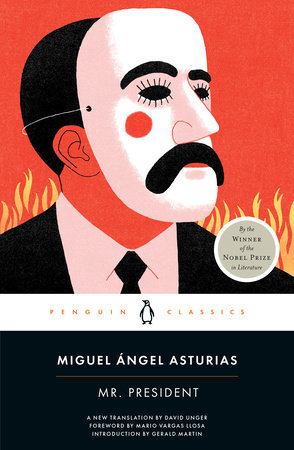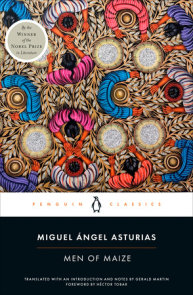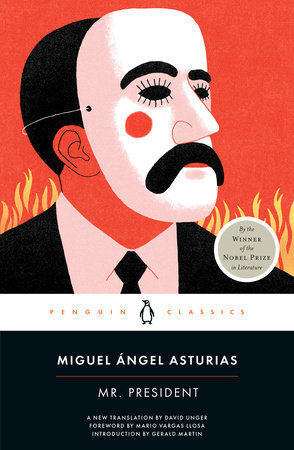

Mr. President
By Miguel Ángel Asturias
Foreword by Mario Vargas Llosa
Introduction by Gerald Martin
Translated by David Unger
By Miguel Ángel Asturias
Foreword by Mario Vargas Llosa
Introduction by Gerald Martin
Translated by David Unger
By Miguel Ángel Asturias
Foreword by Mario Vargas Llosa
Introduction by Gerald Martin
Translated by David Unger
By Miguel Ángel Asturias
Foreword by Mario Vargas Llosa
Introduction by Gerald Martin
Translated by David Unger
Category: Fiction | Classic Fiction
Category: Fiction | Classic Fiction

-
$18.00
Jul 12, 2022 | ISBN 9780143136385
-
Jul 12, 2022 | ISBN 9780525507918
YOU MAY ALSO LIKE
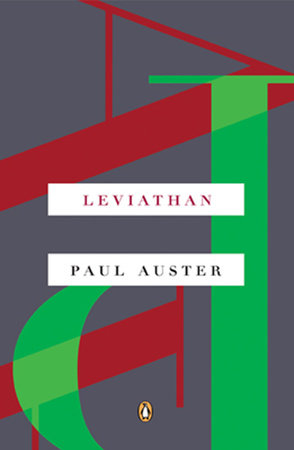
Leviathan

The Portable Emerson
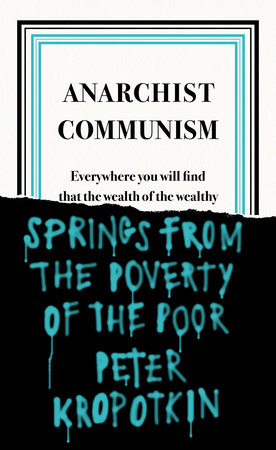
Anarchist Communism

Archipelago

Decisions and Dissents of Justice Ruth Bader Ginsburg

The Scarlet Pimpernel
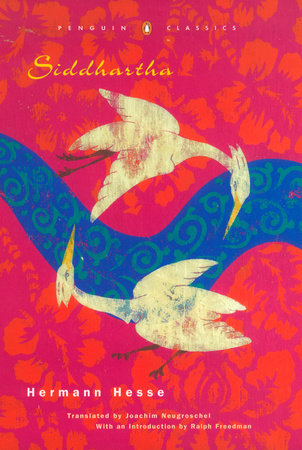
Siddhartha
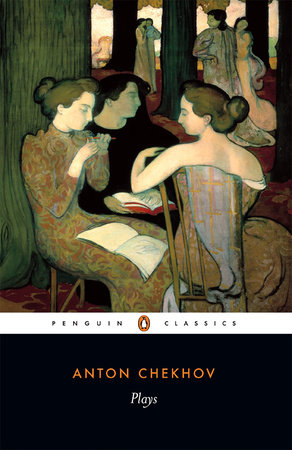
Plays
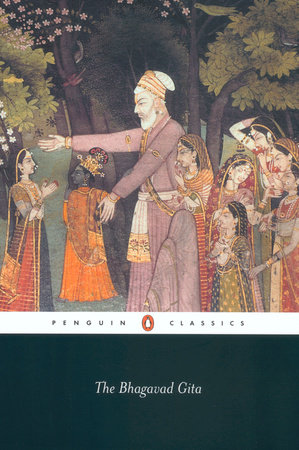
The Bhagavad Gita
Praise
“[A] brilliant translation . . . Shakespearean in scale . . . Electrifying vividness animates every page. . . . What makes Mr. President extraordinary is not simply its enduring subject, but also its operatic and inventive multiform style . . . equally cinematic and poetic. It is reminiscent of Kafka and Beckett in its surreal flights within the consciousnesses of the mad or dying, or within the narrative of myth. . . . The novelʼs vision is relentlessly dark . . . but its execution is exhilarating, daring, even wild. Asturiasʼs boldness is repeatedly arresting, and his descriptions unforgettable. . . . [An] extraordinary and darkly prescient satire of life under brutal dictatorship.” ―Claire Messud, Harper’s Magazine
“[A] masterful translation . . . Reading Mr. President, it’s impossible not to think about the current, sad situation in Guatemala, where endemic corruption, lawlessness, savage drug traffickers, heartless human smugglers, and staggering economic inequality . . . have driven hundreds of thousands of Guatemalans to attempt risky illegal entry into the United States. . . . But Asturias knew how to moderate those horrors by, thankfully, releasing the tension with absurd or scathingly mocking scenes.” ―The Washington Post
“A formidable new English translation [that] may return [Asturias] to the status that is his due. This time, the story speaks not only to Latin America’s cycles of tyranny but to a United States and a Europe confronting, for the first time since it was published, in 1946, a new wave of authoritarian leaders on the rise. . . . What makes Mr. President a ‘tour de force of great originality,’ as the Peruvian novelist Mario Vargas Llosa notes in a foreword to the new translation, is not its plot but its use of language, with invented words, songs, rhythms, and ‘astonishing metaphors.’ ” ―The New Yorker
“One of the most important and influential works of modern Latin American literature, a kind of urtext for the celebrated generation of novelists that followed Asturias . . . Given its brilliance and influence, it continues to be a mystery why Mr. President remains less known in the English-speaking world than the many novels it inspired. . . . Even a cursory reading of David Unger’s new translation . . . establishes why it has had such an enormous impact. . . . Asturias . . . wrote especially beautiful descriptions of both rural landscapes and the sounds and smells of urban life. Unger reproduces these passages magnificently. . . . Set pieces . . . are so vivid that they almost seem to have come from a movie projector. . . . Thanks to Unger’s translation, the anglophone reader can finally be let in on the secret that Latin Americans . . . have always known: Mr. President is a canonical work, doomed to remain timely and topical until the conditions that generated it finally disappear.” —The New York Review of Books
“Brings to life a nameless hell on earth where freedom is only possible through exile or death.” ―The New York Times Book Review
“[With this] masterful, clear new translation . . . a new generation of North American readers will gain access to [Asturias’s] witty, influential, and wrongly maligned masterpiece. . . . The praise for Unger’s translation is highly deserved. But the fact of Penguin Classics and Unger choosing this unfairly suppressed book is long overdue, the wait like being unburied, with your eyes open.” —Public Books
“A nightmarish marvel of the picaresque, a chronicle of unrelenting depravity that often feigns a slip into the fantastic before you remember that all of it is essentially true . . . Anyone who reads one of Asturias’s great novels may gasp, as I did, at the prowess of this minor American giant and wonder about the causes of his relative obscurity.” —Parker Hatley, Los Angeles Review of Books
“[A] harrowing masterwork [of] staggering, lasting beauty . . . A vehicle for lyrical depiction of a people under psychological siege . . . Elegant . . . Brilliant.” ―Americas Quarterly
“A faithful rendering of a timeless classic, a bold translation that at times leans heavily on the original text’s musicality, while at the same time adding a contemporary take and fresh idiomatic ideas to a profoundly idiosyncratic novel. Unger was also able to masterfully bring Asturias’s lyrical beauty into English and even adapt much of El señor presidente’s brutality, absurdity, and humor.” ―Asymptote
“An astonishing nightmare vision of life in a country ruled with unwavering brutality . . . The novel is a linguistic tour de force. . . . In a just world, David Unger’s new translation . . . will finally afford this groundbreaking novel the recognition it deserves among English-language readers. . . . Unger’s translation . . . maintains the source text’s poetic, incantatory language . . . and also captures . . . the razzle-dazzle of Asturias’s prose. . . . Unger’s deft touch . . . preserves the beauty and inventiveness of Asturias’s style, recreating this author’s alliterations, rhymes, onomatopoeias, and amazing metaphors. . . . Unger has captured the beauty, creativity, and innovation found in this fun-house-mirror nightmare of a world. Bravo.” —Translation Review
“A great novel . . . A work of art, a true tour de force of originality and creativity . . . The opening chapters . . . are unforgettable. . . . Half a century after it was written, Mr. President continues to be one of the most original Latin American texts. . . . [It] raised the Latin American novel to its highest level.” —Mario Vargas Llosa, from the Foreword
“The single most famous dictator novel in Latin American history [and] the first major novel in Latin America to attempt a revolution in literary language. . . . I was stunned when I first read it at the age of nineteen, three months after I had read Joyce’s Ulysses. . . . Without Asturias, the so-called ‘magical realist’ perspective and techniques of One Hundred Years of Solitude might not have existed. It was not Gabriel García Márquez who invented magical realism; it was Miguel Ángel Asturias.” ―Gerald Martin, from the Introduction
“What I find most compelling about Mr. President is how much it speaks to the here and now. We live in an age of demagogues. We’ve seen how the whims and fears of a leader, transformed into deeds by an army of sycophants, can spread chaos through a nation’s institutions. Asturias saw this madness, too, and created art from it. . . . In Mr. President, Asturias . . . exposes the lies of a strongman and . . . make[s] us feel how one man can inflict a daily assault on the collective psyche of a people.” —Héctor Tobar, The New York Times
“A truly magical work . . . [It] captures brilliantly . . . the interior climate of a small Latin American republic under a repressive dictatorship. . . . The portrait of El Señor Presidente is chillingly drawn. . . . It is the kind of performance that strains at the limits of a novelist’s craft and is seldom repeated in a writer’s career except by genius.” —The New York Times
21 Books You’ve Been Meaning to Read
Just for joining you’ll get personalized recommendations on your dashboard daily and features only for members.
Find Out More Join Now Sign In






